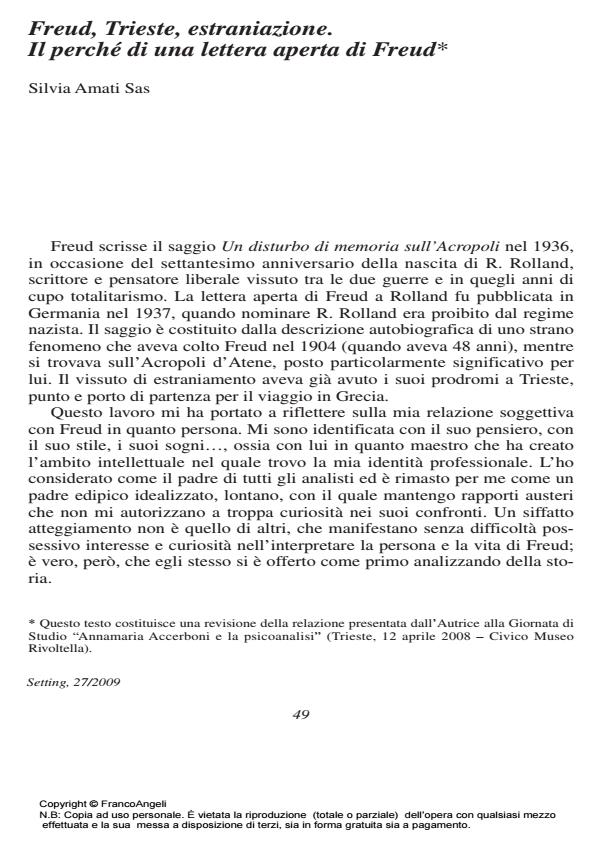Freud, Trieste, estraniazione. Il perché di una lettera aperta di Freud
Journal title SETTING
Author/s Sas Silvia Amati
Publishing Year 2010 Issue 2009/27
Language Italian Pages 10 P. 49-58 File size 825 KB
DOI 10.3280/SET2009-027003
DOI is like a bar code for intellectual property: to have more infomation
click here
Below, you can see the article first page
If you want to buy this article in PDF format, you can do it, following the instructions to buy download credits

FrancoAngeli is member of Publishers International Linking Association, Inc (PILA), a not-for-profit association which run the CrossRef service enabling links to and from online scholarly content.
This article by Amati Sas dwells upon an essay written by Freud as a letter to R. Rolland entitled "A Disturbance of Memory on the Acropolis". The essay considers her interpretation of the sense of estrangement he sensed while on a visit to the Parthenon. This view concerns the trans-subjective, meaning the understanding of the relationship between the subject and the context in which he is living, and goes beyond the Oedipus idea of a son’s guilt in the surpassing of his father as attributed by Freud in his letter. The author connects this feeling of estrangement (which crept into him as he set off from Trieste), when he went from the one state of ambiguity towards the primary defensive no-conflict position. According to Amati Sas, Freud’s desire to see the Acropolis put him in front of the distressing problem of the loss of his Jewish identity as opposed to the ambiguity of his belonging to the Vienna’s world and to and society, at the time influenced by an anti-semitic prejudice.
Sas Silvia Amati, Freud, Trieste, estraniazione. Il perché di una lettera aperta di Freud in "SETTING" 27/2009, pp 49-58, DOI: 10.3280/SET2009-027003